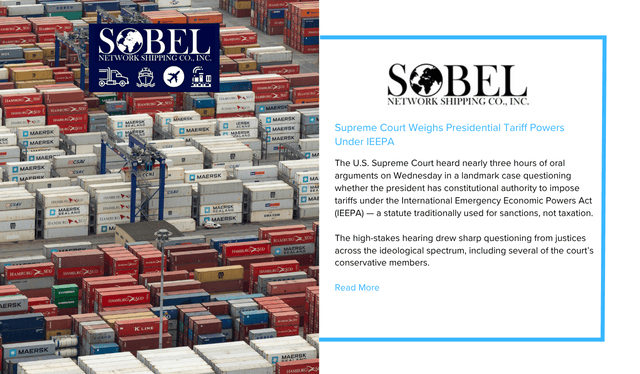The U.S. Supreme Court heard nearly three hours of oral arguments on Wednesday in a landmark case questioning whether the president has constitutional authority to impose tariffs under the International Emergency Economic Powers Act (IEEPA) — a statute traditionally used for sanctions, not taxation.
The high-stakes hearing drew sharp questioning from justices across the ideological spectrum, including several of the court’s conservative members. At issue is whether the president can unilaterally regulate imports and levy tariffs without explicit congressional authorization under Article I of the Constitution, which assigns the power to “lay and collect taxes, duties, imposts, and excises” to Congress.
Skepticism from Both Sides of the Bench
Justice Amy Coney Barrett pressed the administration’s counsel, Solicitor General D. John Sauer, to identify any precedent in U.S. law where the authority to “regulate importation” has been interpreted as including tariff power. Barrett acknowledged that a similar argument was upheld briefly under the Trading with the Enemy Act in the 1970s but questioned its relevance to modern IEEPA applications.
Justice Ketanji Brown Jackson similarly noted that the legislative history of Section 232 — the statute historically used for tariff authority — explicitly discusses duties, while the IEEPA’s does not.
Justice Neil Gorsuch, one of the court’s strongest defenders of congressional authority, raised constitutional concerns about an “open-ended delegation” of tariff powers to the executive branch, warning it could amount to a “one-way ratchet” of power away from Congress. “What president’s ever going to give that power back?” Gorsuch asked.
The solicitor general maintained that IEEPA tariffs are regulatory in nature rather than revenue-raising taxes — an argument that met resistance from Justice Sonia Sotomayor, who countered that tariffs “generate money from U.S. citizens” and therefore fit the constitutional definition of a tax.
Economic and Legal Implications
The consolidated cases — Donald J. Trump v. V.O.S. Selections and Learning Resources v. Donald J. Trump — challenge the Trump administration’s use of IEEPA to justify broad, reciprocal global tariffs. Several states, including Oregon, joined importers in the challenge, arguing that the IEEPA was never intended to authorize tariffs and that its use undermines the separation of powers.
If the Court strikes down the tariffs, it could limit the president’s emergency economic powers and trigger a complex refund process for importers that paid duties under the IEEPA. Barrett suggested such an outcome could be “a complete mess,” while counsel for the challengers acknowledged the difficulty but said Congress could establish a refund framework.
Conversely, if the Court upholds the administration’s interpretation, it could cement expansive presidential control over trade policy — effectively giving the White House latitude to impose duties without congressional consent whenever a “national emergency” is declared.
Broader Context and Timeline
Observers note that the Court’s decision to hear the case only two months after an appellate ruling indicates a fast-tracked review, with a ruling potentially arriving earlier than the typical June schedule. The outcome could reshape the balance of trade powers between Congress and the executive branch and redefine the limits of emergency economic authority.
The hearing attracted senior administration officials, including the Secretaries of Commerce and Treasury and the U.S. Trade Representative, underscoring the case’s significance for global trade policy and U.S. economic governance.


